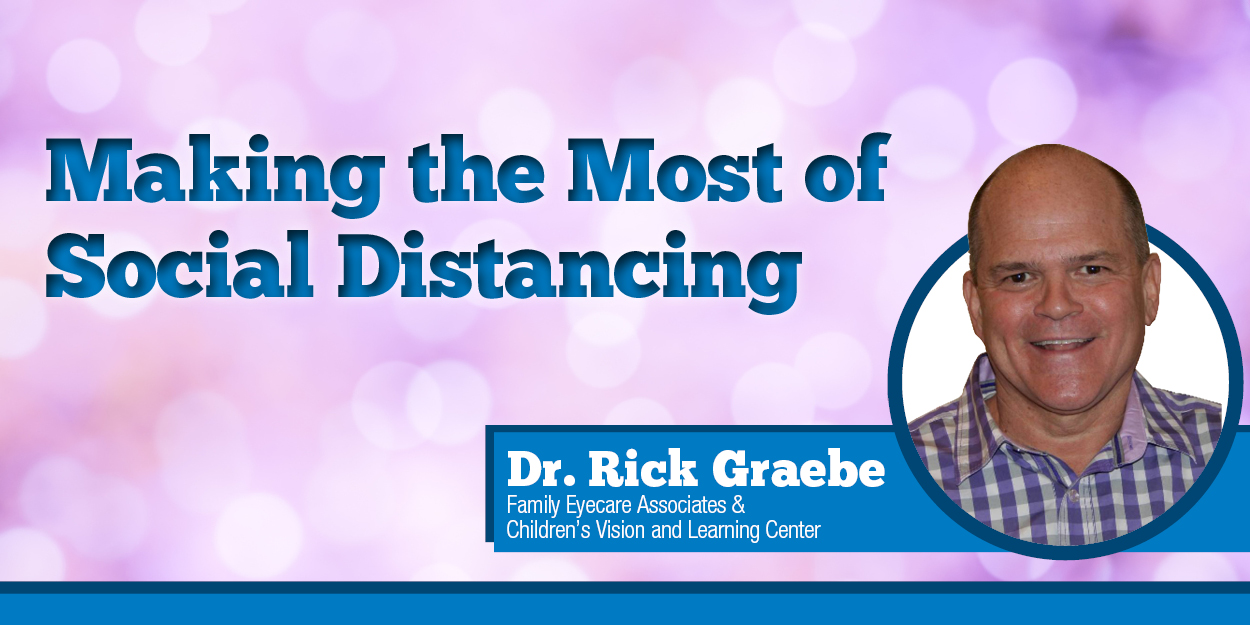Down Time Equals Re-energizing for Graebe
Ever the optimist, Dr. Rick Graebe, a behavioral optometrist in Versailles, has embraced the forced down time caused by the coronavirus crisis to not only reenergize his practice but to refresh his own personal health.
After the crisis hit in mid-March, Dr. Graebe closed both sides of his practice – the optometry side (Family Eyecare Associates) and the Vision Therapy side (Children’s Vision and Learning Center).
At home with his wife, two daughters and a grandchild, Dr. Graebe dove into the task of evaluating his practice.
“We’re usually so busy with patients, but now I can do more reading, more researching,” he said. “It’s like going to the barn to sharpen the saw. We have tools and now have time to see how to use them better.”
For instance, Dr. Graebe’s office specializes in Vision Therapy, a kind of physical therapy for the eyes, brain and body. In a world that is moving more and more online, can Vision Therapy work with Zoom and similar platforms?
The short answer is yes, but there is still much to learn about making that transition without harming the effectiveness of the therapy. Professionals like Dr. Graebe are sharing ideas and methods toward that goal.
“Right now, patients come to the office once a week for a Vision Therapy session and do homework at home,” Dr. Graebe said. “Without being with the patient in the clinic, we could miss so many clues through their work that help the therapy.
“But we’re learning to get better. Maybe we could do sessions once a month and the rest with Zoom. This could also open up our borders. I get calls all the time from people out of state that I have to refer to others.
“When this is over, I know our clinic will be better than before, with better methods and more modalities.”
Dr. Graebe is also tending to his own health, exercising more and walking every day. In addition, he’s boosting his immune system by reducing stress through a technology he offers at his clinic.
BrainTap uses light frequency therapy to help users calm their brain and body. During times of stress, like the crisis we’re facing now, people are susceptible to sympathetic survival syndrome, which is characterized by constant fight or flight mode. It’s like being on red alert 24-7, depriving the brain of rest and rejuvenation.
BrainTap calms the autonomic nervous system, which controls functions not consciously directed, such as breathing, the heartbeat and digestive processes. This leads to deep relaxation, similar to that produced through meditation.
“These are ways to improve my performance that I want to share with patients,” Dr. Graebe said. “That is the purpose of the practice: to improve the lives of our patients.
“This crisis has been horrible, but are we going to cave or say, ‘I got this?’ It’s a test of character. It’s important to remember, as we come together as a community, that this too shall pass.”


